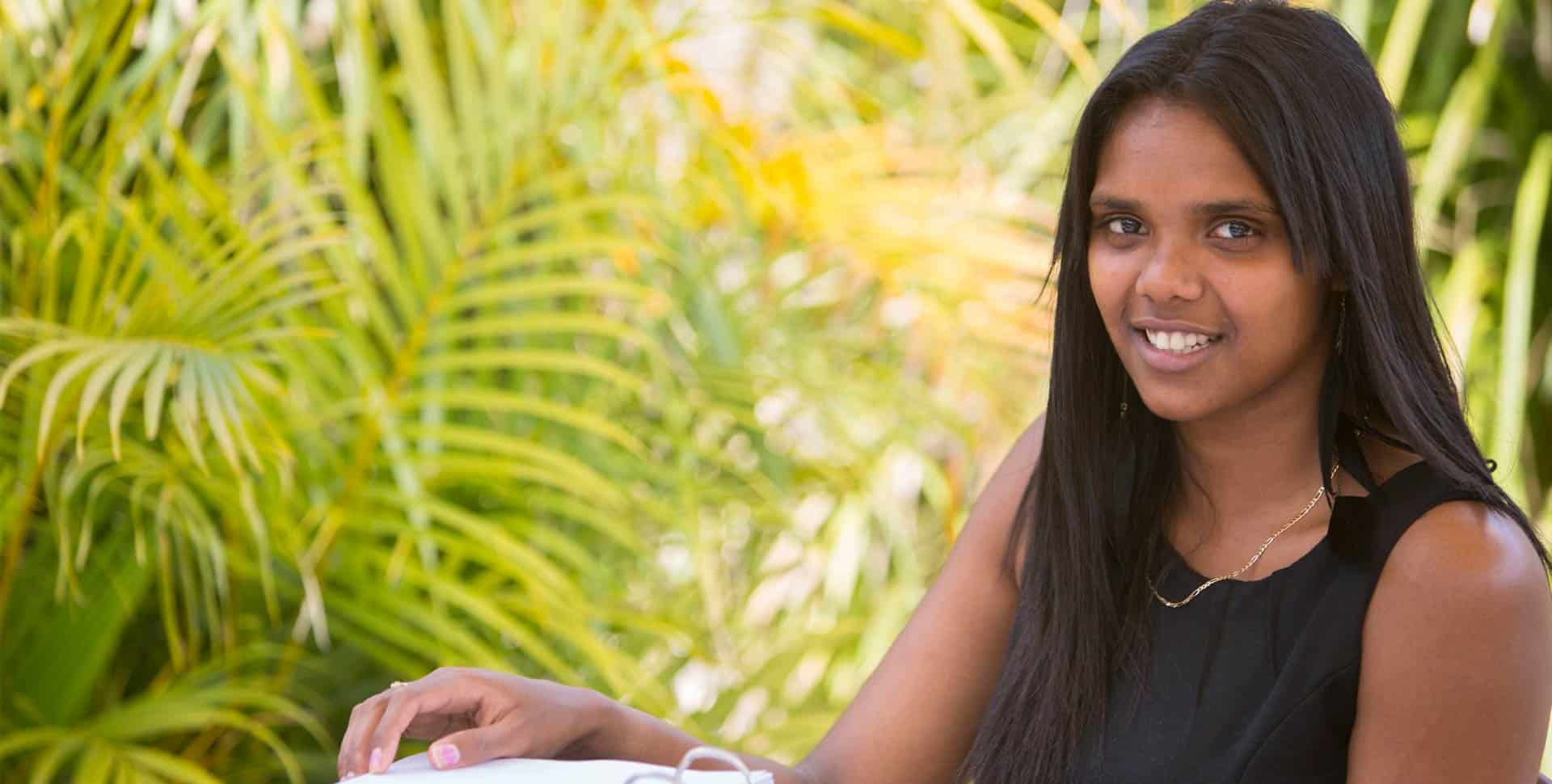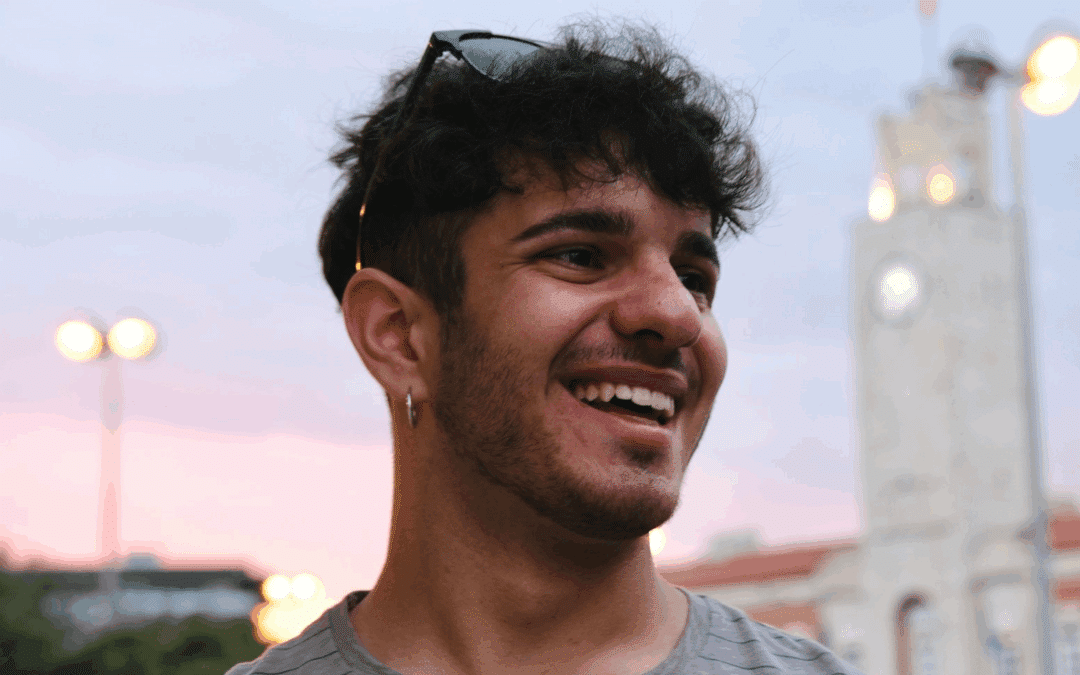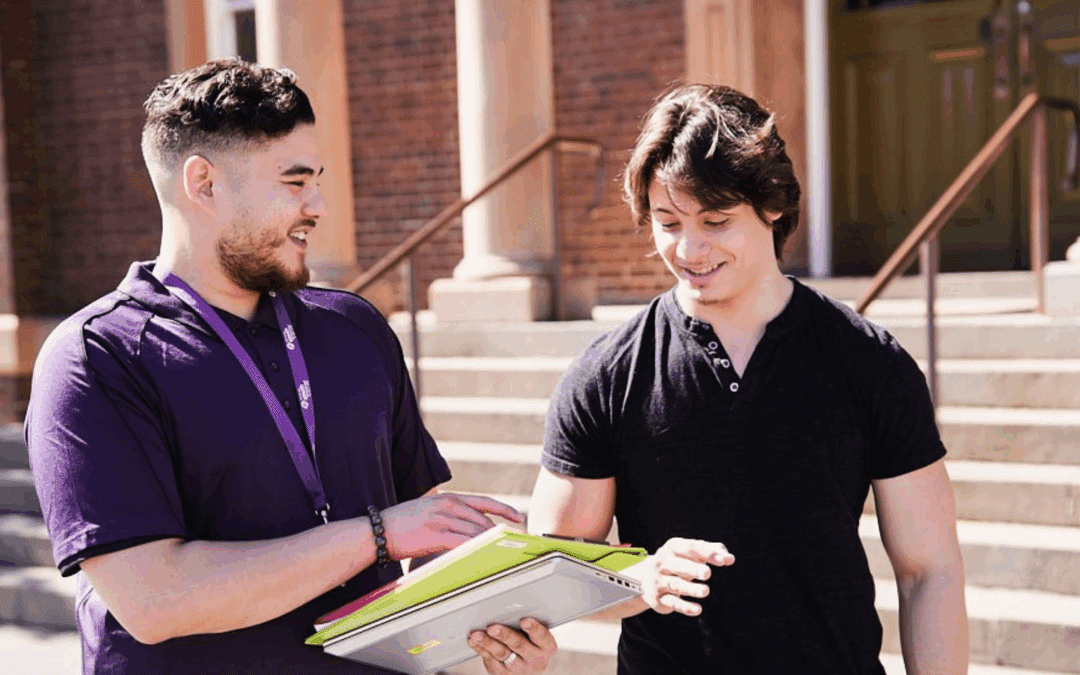This International Day of the World’s Indigenous Peoples, Youth Off The Streets acknowledges the strength and resilience of Indigenous Peoples globally and celebrates First Nations young people’s achievements and contributions to our society.
We also recognise that education is vital for the development and opportunities First Nations young people receive.
We ensure every young person has a pathway to flourish through access to flexible learning and culture-specific programs.
We spoke to Melanie Hofman, our Aboriginal Student Support Youth Worker, about our ASPIRE program, which provides First Nations young people with a safe place to learn and feel supported while connecting to their cultural identity.
Tell us about the Aboriginal Education program and how it supports First Nations young people?
ASPIRE is an alternative learning program designed to support young Indigenous students in Year 9 to Year 12 and continue onto employment. We have a focus on personal and cultural identity and supporting their engagement with the community.
The ASPIRE program works in partnership with Aboriginal Elders, local service providers, government departments and community members with the aim of continual and lasting improvement in outcomes for the young people, families and communities involved.
How do young people get connected to this program?
Young people engaged with a Youth Off The Streets school such as Key College in Redfern and Key College – Chapel School Campus in Merrylands have access to the program and culturally appropriate support.
What barriers do First Nations young people face in education?
First Nations young people face a range of issues while at school. Racism – individual and systemic – can impact a student’s motivation to attend school, their place in the world and have adverse effects on their mental health and social–emotional wellbeing.
First Nations young people need culturally appropriate support, which includes teaching styles, and specialised learning interventions at an earlier age.
We incorporate the 8 Ways of Learning framework, which involves narrative-driven learning, visualised learning processes, hands-on/reflective techniques, use of symbols and metaphors, land-based learning and connectedness to community.
What is the impact of this program on First Nations youth?
This program gives them a place to feel safe and supported with others experiencing similar challenges.
It is tailored to the young person’s needs – these can range from transitional support from Youth Off The Streets schools to further studies and employment or exploring cultural identity.
Exploring cultural identity can be a long and personal journey. Some young people have not had these conversations before the program and may feel lost or disconnected from their culture or cultural identity. Helping them navigate this journey is a necessary process.
Why is a program like ASPIRE essential?
Connection to community is an essential part of the program and it’s what makes it unique. First Nations people work better in groups, working together and supporting each other.
What else is required to help First Nations young people reach their goals?
Programs similar to this one, which focus on the outcomes of the individual, should be available to all First Nations young people. I think all schools must also commit to truth-telling within the curriculum, starting in primary school.
This will ensure that all Australians are aware of their true history, and through this truth-telling, a new understanding of what First Nations people have endured and continue to endure will be learned.
How can the community help First Nations young people reach their full potential?
Please educate yourself on how to engage First Nations people and how best to support them. Show compassion and give all young people the space to explore their own identity without prejudice or expectations.
Also, learn the protocols of the people you’re working with, as this is important in respecting community members and Elders.
Learn more about our Aboriginal support services.



